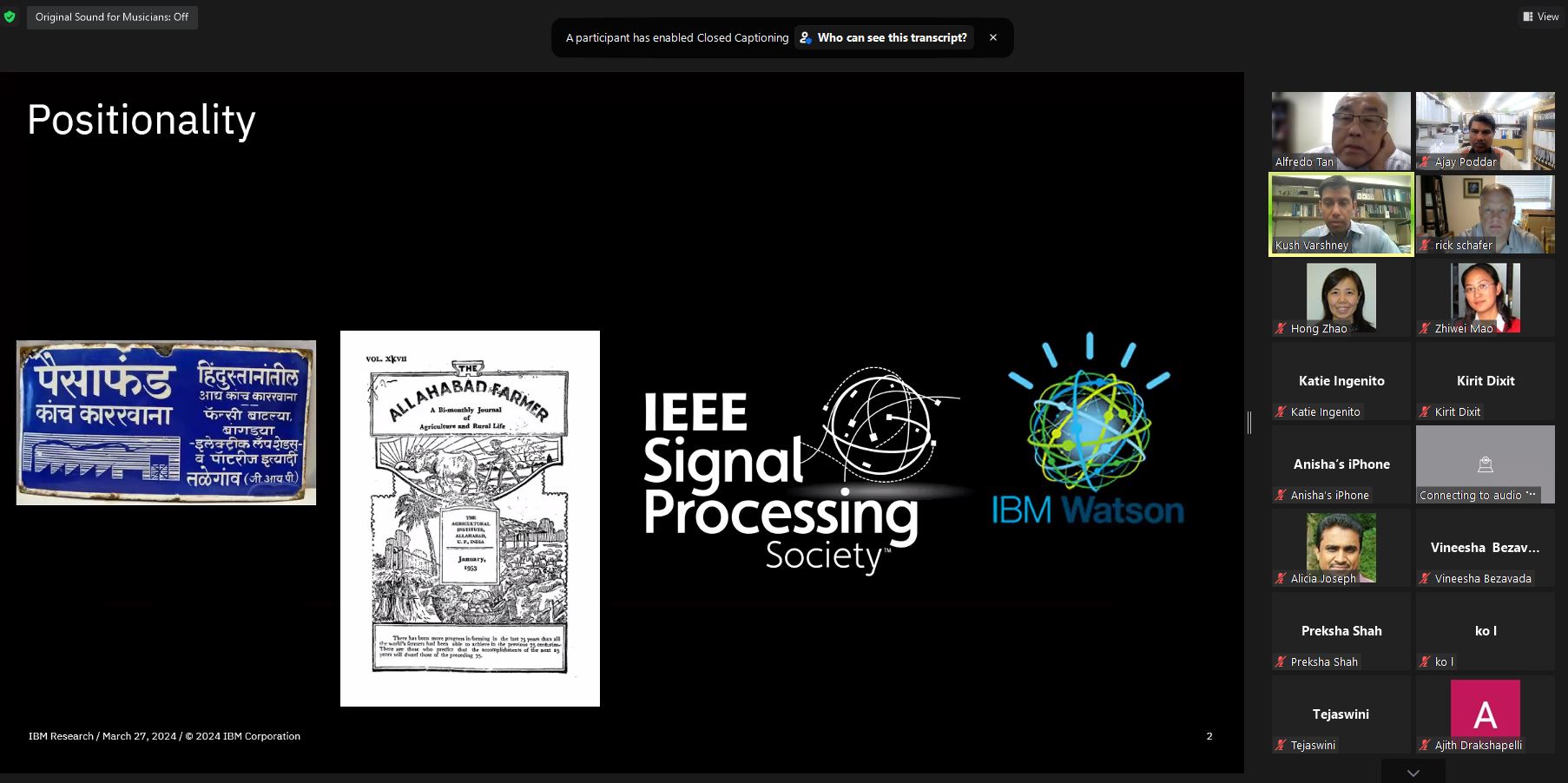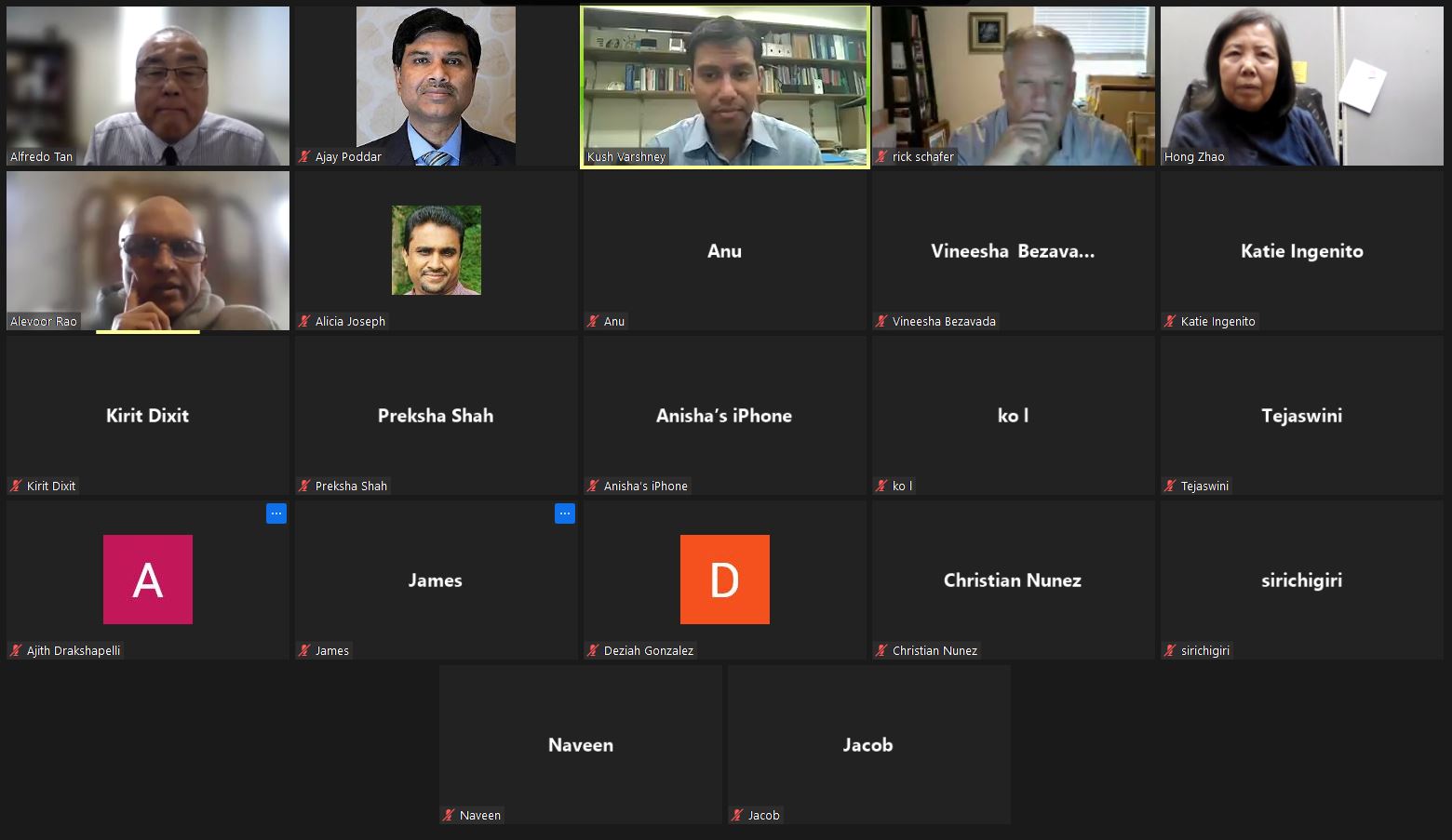A Carative Approach to AI Governance
In recent times, we often hear a call for the governance of AI systems, but what does that really mean? In this talk, I will first adopt a control theory perspective to explain governance that determines the reference input via value alignment, data scientists acting as the controller to meet the values in a machine learning system, and facts captured in transparent documentation as the feedback signal. I will then adopt a nursing theory perspective to explain how the control theory perspective lacks caring and the need for a carative approach that starts with the real-world problem as experienced by the most vulnerable people. I will conclude with an example of a project on using machine learning to evaluate applicants for home solar panel systems in rural India as well as a discussion of governing large language models.
Date and Time
Location
Hosts
Registration
-
 Add Event to Calendar
Add Event to Calendar
Loading virtual attendance info...
- Contact Event Hosts
- Co-sponsored by Fairleigh Dickinson University
Speakers
Dr. Kush Varshney of IBM Research
A Carative Approach to AI Governance
In recent times, we often hear a call for the governance of AI systems, but what does that really mean? In this talk, I will first adopt a control theory perspective to explain governance that determines the reference input via value alignment, data scientists acting as the controller to meet the values in a machine learning system, and facts captured in transparent documentation as the feedback signal. I will then adopt a nursing theory perspective to explain how the control theory perspective lacks caring and the need for a carative approach that starts with the real-world problem as experienced by the most vulnerable people. I will conclude with an example of a project on using machine learning to evaluate applicants for home solar panel systems in rural India as well as a discussion of governing large language models.
Biography:
Dr. Kush Varshney was born in Syracuse, New York in 1982. He received the B.S. degree (magna cum laude) in electrical and computer engineering with honors from Cornell University, Ithaca, New York, in 2004. He received the S.M. degree in 2006 and the Ph.D. degree in 2010, both in electrical engineering and computer science from the Massachusetts Institute of Technology (MIT), Cambridge. While at MIT, he was a National Science Foundation Graduate Research Fellow.
Dr. Varshney is a distinguished research scientist and senior manager with IBM Research at the Thomas J. Watson Research Center, Yorktown Heights, NY, where he heads the Human-Centered Artificial Intelligence and Trustworthy Machine Intelligence teams. He was a visiting scientist at IBM Research - Africa, Nairobi, Kenya in 2019. He is the founding co-director of the IBM Science for Social Good initiative. He applies data science and predictive analytics to human capital management, healthcare, olfaction, computational creativity, public affairs, international development, and algorithmic fairness, which has led to the Extraordinary IBM Research Technical Accomplishment for contributions to workforce innovation and enterprise transformation, and IBM Corporate Technical Awards for Trustworthy AI and for AI-Powered Employee Journey.He and his team created several well-known open-source toolkits, including AI Fairness 360, AI Explainability 360, Uncertainty Quantification 360, and AI FactSheets 360. AI Fairness 360 has been recognized by the Harvard Kennedy School's Belfer Center as a tech spotlight runner-up and by the Falling Walls Science Symposium as a winning science and innovation management breakthrough.
He conducts academic research on the theory and methods of trustworthy machine learning. His work has been recognized through paper awards at the Fusion 2009, SOLI 2013, KDD 2014, and SDM 2015 conferences and the 2019 Computing Community Consortium / Schmidt Futures Computer Science for Social Good White Paper Competition. He is a fellow of the IEEE.
Address:United States
Agenda
In recent times, we often hear a call for the governance of AI systems, but what does that really mean? In this talk, I will first adopt a control theory perspective to explain governance that determines the reference input via value alignment, data scientists acting as the controller to meet the values in a machine learning system, and facts captured in transparent documentation as the feedback signal. I will then adopt a nursing theory perspective to explain how the control theory perspective lacks caring and the need for a carative approach that starts with the real-world problem as experienced by the most vulnerable people. I will conclude with an example of a project on using machine learning to evaluate applicants for home solar panel systems in rural India as well as a discussion of governing large language models.



